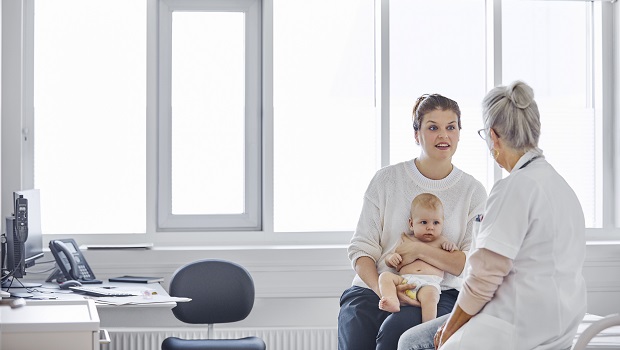When does your child need antibiotics?

When your child is sick—maybe with a cough, sore throat, or earache—you want to help right away. Many illnesses clear up on their own, though, with a little time. For symptoms that seem serious enough to visit a doctor, you or your pediatrician might be thinking about a prescription for antibiotics.
Although antibiotics can help with some illnesses, they have side effects. That’s why Dr. Rita Mangione-Smith, pediatrician and executive director of Kaiser Permanente Washington Health Research Institute, says, “We tell parents, ‘Why expose your child to a drug when you don’t need to? For an illness that gets better on its own, we want to let that recovery happen.’”
Antibiotic risks
Some parents might ask: Why not give my child antibiotics, just in case? The reason is these medicines can lead to short-term problems such as:
- An upset stomach
- Diarrhea
- Yeast diaper rash
Also, giving children antibiotics they don’t need now can add to future problems. These include:
- Allergies to antibiotics
- Development of resistant bacteria
Resistant bacteria are those no longer stopped by antibiotics. If a child carries them and they cause an infection, it will be difficult to treat.
Asking questions
Dr. Mangione-Smith has done extensive research on reducing antibiotic overuse among children by improving doctor-parent communication. She suggests talking with your pediatrician to make sure your child gets the right treatment and takes antibiotics only when needed. Here are questions that can help you know what to expect and how to help your child recover.
If your doctor prescribes antibiotics, ask:
- Are these medicines really necessary?
- Is it better to “watch and wait”?
Whether the illness is treated with antibiotics or not, ask:
- How long is the illness likely to last?
- What symptoms or signs would mean my child needs to see the doctor again?
- What can I do now to ease the symptoms?
Relieving symptoms
A few simple treatments might help your child feel better, says Dr. Mangione-Smith. They include:
- To ease a cough, older children can have a little honey. Babies should not get honey until they are older than 1 year, though.
- For a cold, a humidifier might relieve some symptoms. In bed, raising your child’s head with an extra pillow might help with a stuffy nose or congestion.
- For fever or pain, consider children’s ibuprofen or acetaminophen (but not aspirin unless advised by a doctor). And Dr. Mangione-Smith notes that the American Academy of Pediatrics says that over-the-counter cough and cold medicines should not be given to children under the age of 4.
Being informed
To help your family stay healthy, keep up-to-date on the latest information about when to use and when not to use antibiotics. Here are some resources:
- Kaiser Permanente: Antibiotics and common illnesses
- Kaiser Permanente Health Encyclopedia: Antibiotics
- CDC (Centers for Disease Control and Prevention): Will antibiotics help for these common infections?


